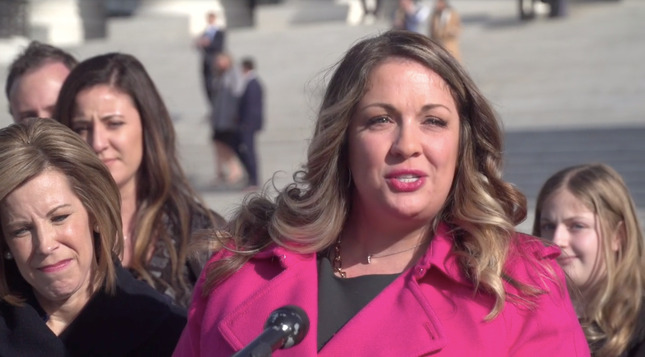Turns Out the Supreme Court’s Gay Wedding Website Case May Be Based on a Lie
Lorie Smith has never made wedding websites, but she claims she was asked to by a gay couple. New reporting suggests the request was bogus.
JusticePolitics

Update 6/30/23, 12pm: The Supreme Court ruled 6-3 in Lorie Smith’s favor, opening a Pandora’s box of discrimination.
The Supreme Court is set to deliver a ruling Friday—the final day of the term—about whether state anti-discrimination laws violate the First Amendment right to free speech. The decision could be a civil rights nightmare by allowing businesses open to the public to refuse to serve people based on their race, religion, or sexual orientation. The case at issue was already shady, but new reporting suggests it’s even more questionable than we knew.
Lorie Smith is a Colorado website designer who, importantly, has never made wedding websites. However, she filed a lawsuit claiming that she wants to, but, because she opposes marriage equality, she disagrees with a state law that would make her accept gay clients. To be clear: This means Smith had not gotten in trouble with the state, she merely feared potential consequences down the line. She should not have standing to sue, but here we are. The court isn’t hearing the case on religious grounds, rather on free speech grounds, specifically whether state laws “compel an artist to speak or stay silent.” (Smith’s business name is 303 Creative; the case is 303 Creative v. Elenis.)
-

-

-

-

-

-

-

-

-

-

-

-

-

-

-

-

-

-

-

-

-

-

-

-

-

-

-

-

-

-

-

-

-

-

-

-

-

-

-

-








































